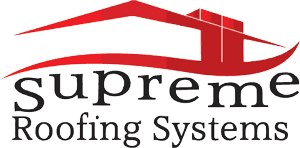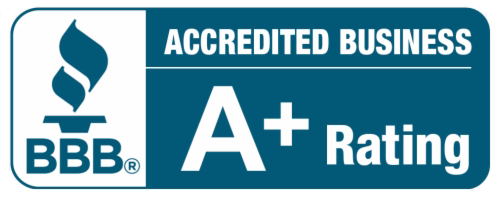The Importance of Roof Inspections Before Leasing A Commercial Space
Ensuring Roof Integrity In Commercial Properties
Signing a commercial lease is a significant step for a business, setting the stage for future operations, growth, and long-term success. While tenants often scrutinize lease terms, zoning regulations, and the condition of the building’s interior, the state of the roof is frequently overlooked. This can be a costly mistake. A failing or neglected roof doesn’t just mean potential repairs—it can lead to business disruptions, safety hazards, and expensive disputes with the landlord. Knowing exactly what’s overhead before committing to a lease can make all the difference.
Hidden Issues Can Become Expensive Headaches
From the ground, a roof might look solid. Even standing on top of it, there may be no obvious warning signs of damage. But commercial roofs are complex systems with multiple layers, drainage pathways, and protective coatings. Problems can be lurking just beneath the surface, waiting to cause serious issues the moment heavy rain or a snowstorm puts the structure to the test. Ponding water, deteriorated flashing, or a compromised membrane might not be visible to an untrained eye, but over time, these issues can lead to leaks, mold growth, and structural damage. If the roof has been patched repeatedly instead of being properly repaired, those temporary fixes may fail just months after a tenant moves in. A thorough inspection by a roofing professional ensures that minor defects are caught before they turn into major financial burdens.
Deferred maintenance is another concern. Some landlords stretch the lifespan of a roof well beyond its intended years, applying band-aid solutions instead of addressing core issues. If a tenant doesn’t investigate before signing, they could end up responsible for replacing a roof that should have been the landlord’s responsibility. Understanding the true condition before moving in provides leverage for negotiation and prevents unexpected repair costs down the road.
Lease Agreements Often Shift Responsibilities To Tenants
Commercial leases come in different structures, and many of them push maintenance obligations onto the tenant. Triple-net (NNN) leases, which are common for retail and industrial spaces, require tenants to handle everything from repairs to property taxes. Even in modified gross leases, there may be clauses making tenants responsible for roof maintenance. Without an inspection, a tenant may unknowingly inherit a problem that wasn’t theirs to begin with.
Negotiating these terms without knowing the condition is like agreeing to maintain a vehicle without checking under the hood. If a tenant moves in and later discovers chronic leaks, the financial burden of repairs could land squarely on their shoulders. Some leases have vague language, stating that tenants must keep the roof in “good condition” without defining what that actually means. This ambiguity often leads to disputes when leaks appear and neither party wants to foot the bill.
A professional inspection clarifies responsibility before the lease is signed. If issues exist, a tenant can negotiate for repairs to be completed before moving in or for rent reductions to offset future costs. In some cases, tenants may even be able to push for a warranty or maintenance plan to be included in the lease agreement. The key is having the information upfront, so there are no surprises after the business is already settled into the space.
Roof Failures Can Disrupt Business Operations
A failing roof doesn’t just create financial headaches—it can also bring business to a halt. A single leak can damage expensive equipment, ruin inventory, and create hazardous working conditions for employees. In industries where safety and cleanliness are top priorities, such as food production or healthcare, even minor leaks can lead to regulatory issues. Water intrusion can also trigger electrical problems, increasing the risk of fire or power outages.
For businesses that rely on foot traffic, a leaky roof can be a public relations nightmare. Imagine a retail store with buckets catching water in the aisles or a restaurant where ceiling tiles are sagging from moisture damage. Customers may take one look and decide to shop or dine elsewhere. Once a business gains a reputation for being poorly maintained, it can be difficult to recover.
Beyond immediate damage, unresolved problems can lead to prolonged closures. If mold develops due to persistent leaks, a business might be forced to shut down for extensive remediation. If structural integrity is compromised, city inspectors may require repairs before operations can resume. All of this adds up to lost revenue, frustrated employees, and potential legal battles with the landlord. A proactive roof inspection helps businesses avoid these disruptions by addressing concerns before they turn into operational nightmares.
What A Thorough Inspection Should Include
A proper roof inspection goes beyond a quick visual check. A qualified roofing contractor can assess the condition of the membrane, seams, flashing, drainage systems, and insulation. They’ll look for signs of ponding water, punctures, and previous repairs that may not have been done correctly. Thermal imaging can detect trapped moisture beneath the surface, identifying problem areas that aren’t immediately visible.
It’s also important to review the roof’s maintenance history. Some landlords keep detailed records of past inspections and repairs, while others have little to no documentation. A lack of maintenance history can be a red flag, signaling that the roof has been neglected for years. Tenants should request this information during lease negotiations and compare it with the findings from their independent inspection.
Before signing a lease, take control of what’s above your head. Supreme Roofing provides expert commercial roof inspections, giving you the confidence to negotiate from a position of strength. Contact us today to schedule an assessment and protect your business from unexpected roofing issues.
All Rights Reserved | Supreme Roofing Systems

